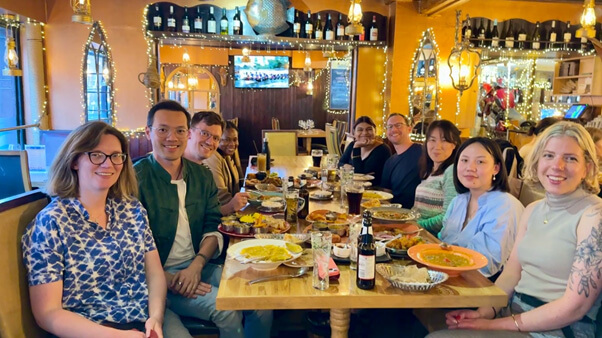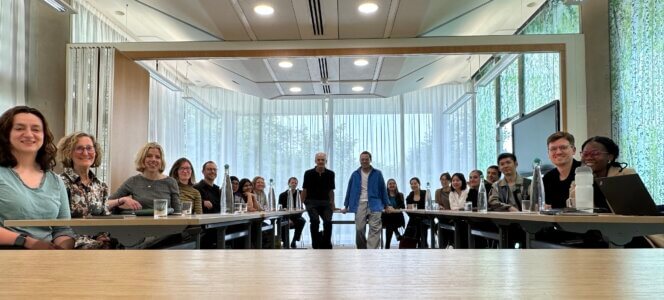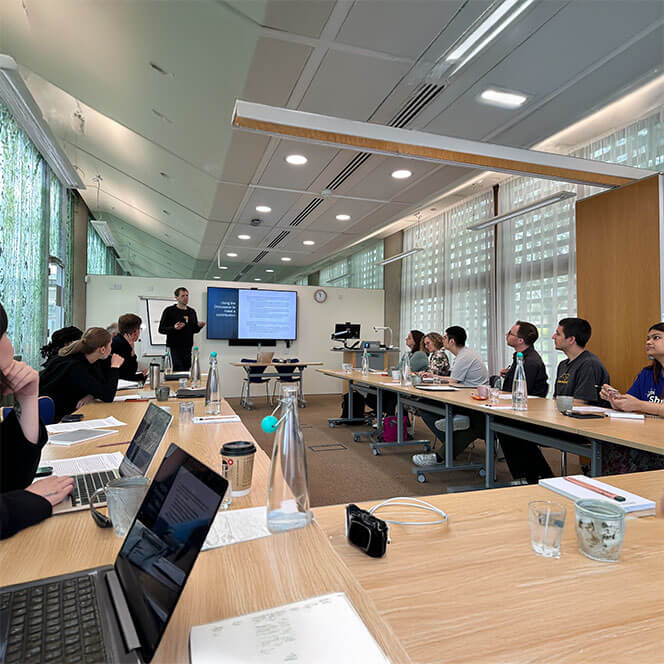The BSA journal, Work, Employment and Society (WES) has just held its first PhD Showcase paper development workshop. In 2022, WES founded the PhD Showcase Section as a new section of the journal. Researchers still within their PhD studies, or within 3 years of their PhD graduation are able to submit their research articles to the section. Papers have to pass the same quality standards that pertain to main research articles, but we offer more developmental space – including an offer of a one-to-one meeting with the editor, and potentially more rounds of reviews. The PhD Showcase has been a great success, garnering around 100 submissions per year.
Such is our enthusiasm at WES for this section of the journal that when we had the opportunity to use some funds from surpluses generated by previous WES conferences, we immediately thought of running a 1.5 day Phd Showcase workshop aimed at developing papers, and overall scholarship among participants. Held at the University of Nottingham, and run by 4 editors (Marek Korczynski, Laurie Cohen, Nadia Kougiannou, and Charles Umney), the workshop featured 16 (funded) participants who each attended with a draft PhD Showcase paper. The workshop was infused with a spirit of developing scholarship in a collegial way. In keeping with this collegial spirit, we have some reflections first from a workshop participant, and then from an editor.
Participant’s Perspective – Muhao Du
I was thrilled and honoured to have my extended abstract accepted for the workshop. As an early-career academic, it was a rare and valuable opportunity to receive in-depth, constructive feedback from journal editors and peers. The one-and-a-half-day workshop primarily focused on two of the most challenging and crucial aspects of academic writing: crafting a compelling introduction and developing a strong discussion section. These sessions, along with small-group conversations, were both intellectually rigorous and practically helpful.
One of the most insightful sessions for me was the focus on writing a good introduction. Laurie Cohen and Marek Korczynski, WES Editors-in-Chief, led an engaging and detailed session on how to structure introductions and select effective titles. They began with a breakdown of title types—such as descriptive and poetic—and prompted us to revise our own titles to better reflect our arguments and attract the right readers. This was followed by an in-depth analysis of two examples of introductions, through which we learned how to situate a paper, articulate its research gap, and signal its contribution clearly. With time to reflect and rewrite, I was able to rework my own introduction based on this framework, which helped me sharpen my positioning and clarify the theoretical argument of my draft.
Equally rewarding was the small-group workshop on individual papers, held on the second day. Each participant had their draft paper discussed in detail by an editor and their peers. My paper was the first to be discussed—which made me slightly nervous—but the discussion turned out to be the most intense, thought-provoking, and rewarding session of the workshop. The oral feedback I received during the session, followed by written comments from the editor, gave me a much clearer picture of how my paper was being read and what areas required development. This included practical suggestions on improving structure, clarifying contribution, and strengthening the logic of the argument. It was rare to receive such targeted, hands-on advice in a supportive yet critical environment. It was great for me to have the chance to explain the concept that I am trying to develop in my article and I was very encouraged!

Beyond the academic programme, the workshop also included a lovely dinner (see photo 1), which provided a relaxed space to connect with fellow researchers and editors. I am truly grateful to the BSA and the WES editorial team for organising such an enriching and collegial event. I left with not only a more developed paper, but also a renewed sense of confidence and connection with the scholarly community. I only wish the workshop had lasted longer!
Editor’s Perspective – Marek Korczynski
I speak for all 4 editors at the workshop in saying that we were honoured to take part in the workshop. We learned from these PhD scholars and early career scholars in addition to helping their learning. All of us were inspired by the drive for critical sociological knowledge on important new topics that the participants brought to the workshop. We tried to build in opportunities for peer learning among participants as part of the workshop, and we were delighted that the participants engaged with each other’s research in such a constructive, engaged, and insightful way. In addition, a word of thanks to the great support in organising the workshop from wonderful BSA staff members, Alison Danforth and Georgina Sailes. Overall, we left the workshop confident that the next generation of sociology of work scholars is going to carry the WES flame forward with spirit and skill in equal measure.


